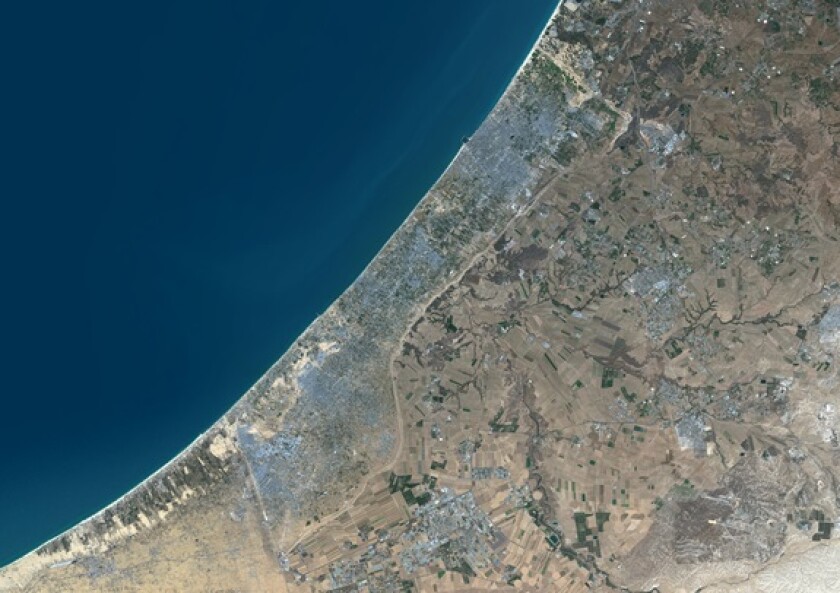Arab and Western states are considering helping with the cost of reconstruction of the Palestinian territories in the wake of the conflict in Gaza. But any such funding would depend on a political settlement being reached, and that remains elusive, experts warned, as new reports detailed the human and economic cost of the Israel-Hamas war.
Gaza’s health ministry said on Wednesday that nearly 43,000 people had died since the war began in October 2023. The war has caused nearly $18.5bn of damage in Gaza alone, and clearing over 37m tonnes of debris could take up to 14 years, the Atlantic Council said in a report launched in Washington.
Funding and assistance for Gaza’s reconstruction remain in doubt while the conflict lasts. “There are talks of three of the Gulf countries — UAE, Saudi Arabia and Qatar — contributing to reconstruction costs,” said Perrihan Al-Riffai, the Atlantic Council report’s author and an economic expert at the Qatar Central Bank. She said there was also talk of the EU and the US lending financial assistance.
But beyond the price tag of clearing rubble and munitions, countries are likely to baulk at providing help without knowing what political situation will emerge. “It’s not just a matter of reconstructing buildings and removing debris, it has to do with the political economy that’s going to prevail once there is a ceasefire, and there is a lack of clarity around that,” Al-Riffai said.
Hamas has ruled Gaza for 17 years, but Israel is determined that it cannot be part of any future government. If Israel effectively takes over the territory, that could be politically unpalatable for some donors.
Minimal trade impact
Pressure on the international community to resolve the conflict is tempered by its limited effect on the global economy. The most conspicuous impact has been through maritime trade, Al-Riffai told GlobalMarkets.
Iran-linked Houthi rebels began attacking Red Sea shipping in response to the war, which has caused a major rerouting of shipping round the Cape of Good Hope.
But Thibault Denamiel, an associate fellow at the Center for Strategic and International Studies, said that while Houthi shipping attacks had influenced consumer prices, the effect had so far been minimal. Although higher value trade has been rerouted, bulk carriers are still transiting the Red Sea.
Al-Riffai said excess vessel capacity before the conflict had also stopped Houthi attacks affecting the price of traded goods.
“We haven’t seen that cost push on to the consumer yet,” she said. “However, if we start seeing more intensified attacks or if something happens at one of the choke points — like the Strait of Hormuz — and then oil supply chains become impacted, you will start to see consequences.” Expectations that the war in Gaza would hit oil prices have not yet come to pass, largely due to OPEC+ stabilisation efforts and high oil inventories. However, Iran has threatened to close the strait — the sole route for many GCC oil exports — if it is attacked.
Leaked US intelligence documents this week appeared to show a US assessment of Israeli plans for an attack on Iran. However, Atlantic Council analysts believe it is unlikely that Israel would hit Iran’s oil infrastructure.
“On both sides of the political spectrum, there are those who are OK with targeting Iranian infrastructure, including oil infrastructure,” Al-Riffai said. “But then there are those who are not, because there are going to be impacts.”
